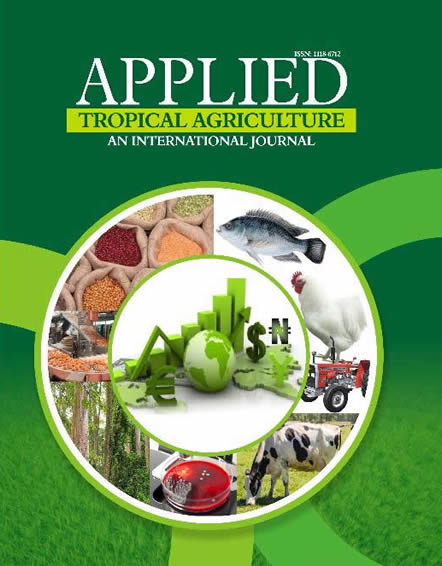This study examines the potential impacts of deforestation and reforestation on climate and crop yields in West Africa. It combined regional climate and crop yield models to perform a series of multi-year climate and crop yield simulations for West Africa. The simulations used three different land-cover patterns to designate present-day, deforestation, and forest regeneration conditions in the region. The climate model reproduces the essential features of West African climate. The crop model replicates the inter-annual variability of the crop (maize, millet, cowpea and groundnut) yields, and shows how changes in rainfall affect crop yields. The study revealed that the ongoing deforestation along the Guinea zone (4oN –9oN) may reduce West African rainfall by 20%, through reduction in both evapotranspiration and Moisture Flux Convergence (MFC). A 20% drop in rainfall could reduce groundnut yield by 8%, maize yield by 9%, millet yield by 10%, and cowpea yield by 15%. On the other hand, a well-planned forest regeneration in West Africa could increase rainfall by more than 23%. This may increase maize yield by 1%, groundnut yield by 6%, millet yield by 11% and cowpea yield by 19%. These results suggest that integrating trees into agricultural and urban landscapes may assist in mitigating the impact of global warming on West African climate, and can also have positive impact on food production.
PAPER TITLE :SIMULATING THE POTENTIAL IMPACT OF DEFORESTATION AND FOREST REGENERATION ON CROP YIELD IN WEST AFRIC
APPLIED TROPICAL AGRICULTURE | VOLUME 20 NUMBER 2 2015
Paper Details
- Author(s) : Abiodun, B.J.1, Oguntunde, P.G.2 and Babalola, T.E.3*
- Abstract:


